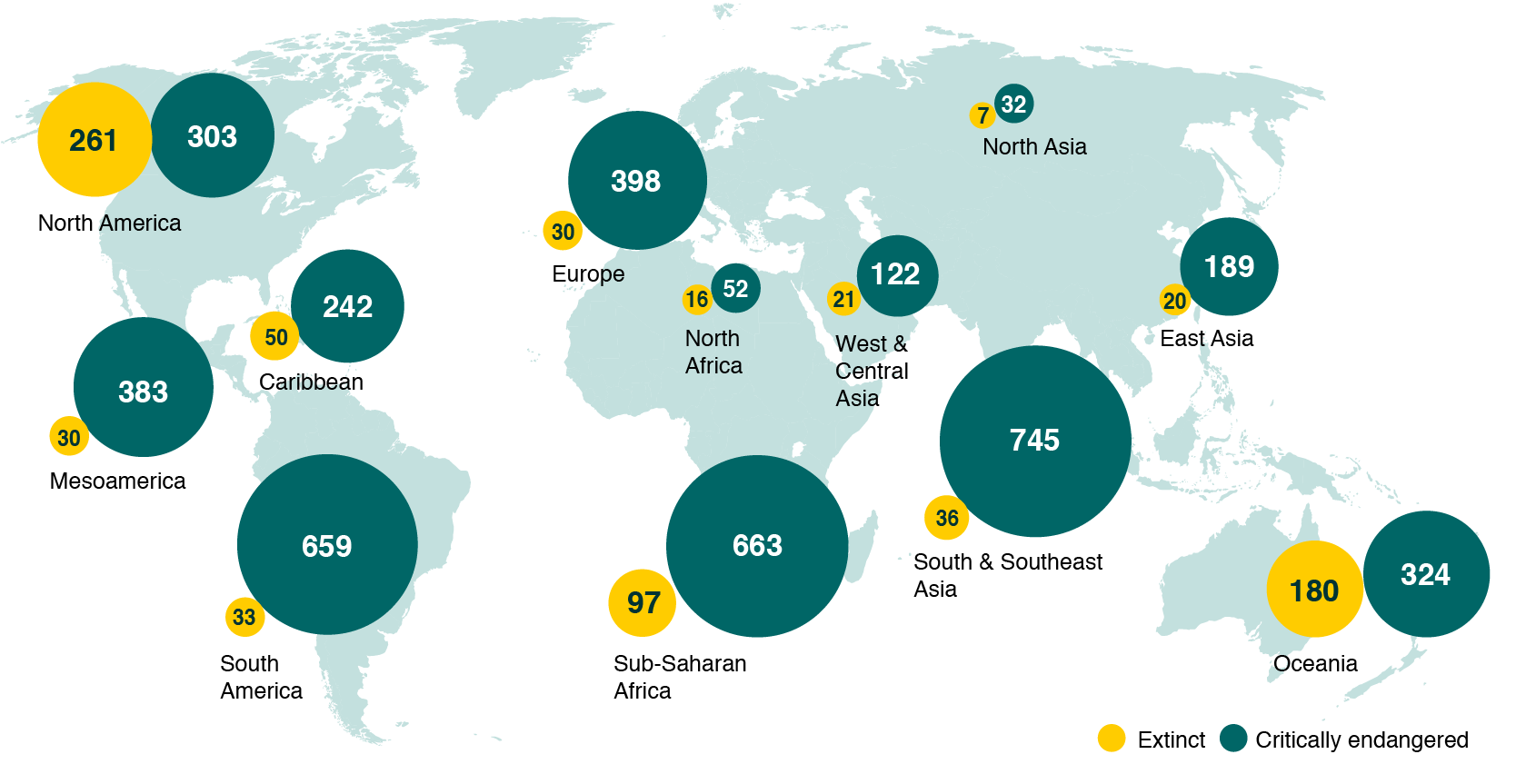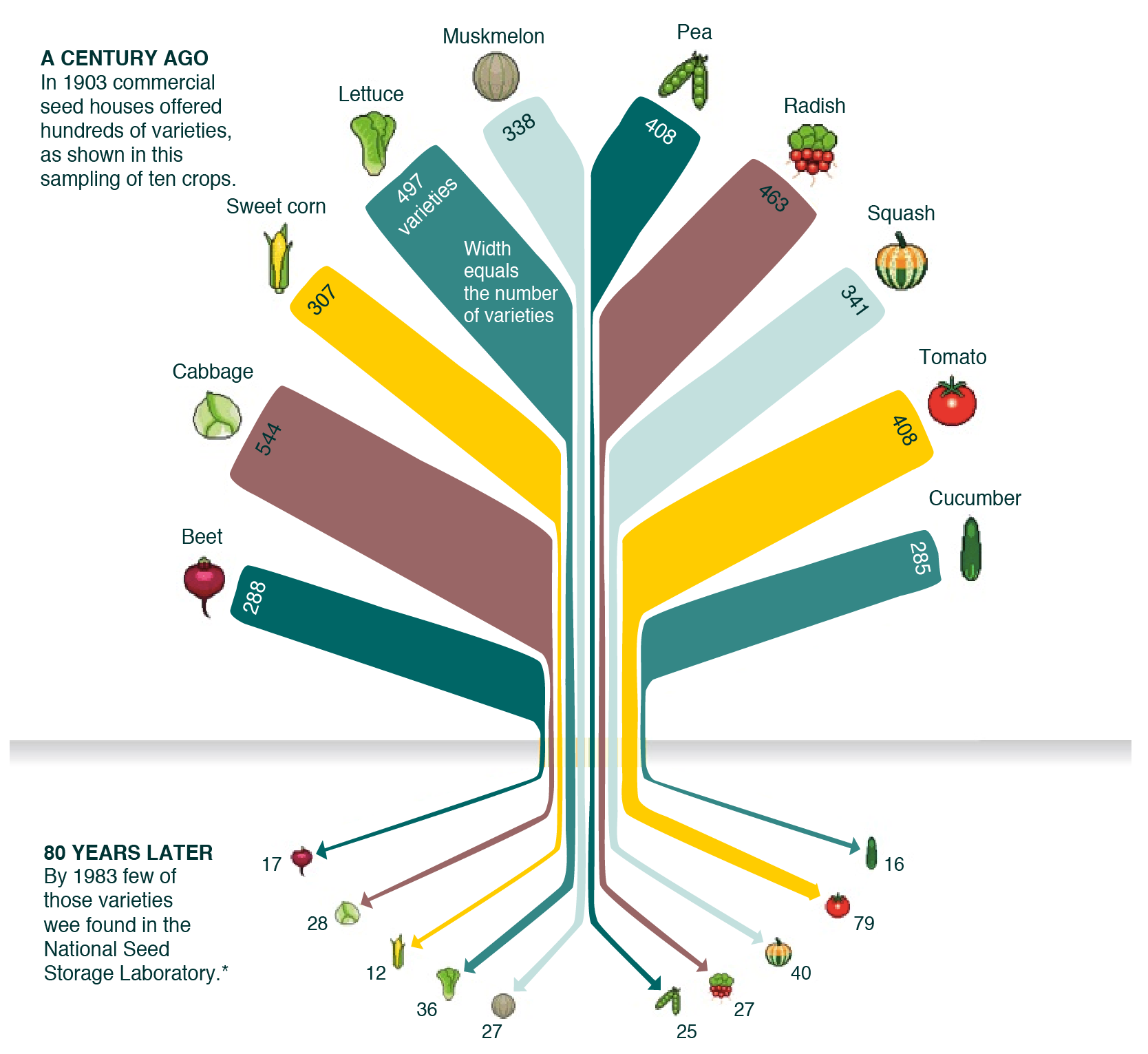“People think that I’m just trying to look after nice, fluffy animals. What I’m really trying to do is stop the human race from committing suicide.”
Gerald Durell, Pioneer Conservationist (1960)
.
10,000 years ago, the biomass of humans and their domestic animals represented 0.4% of the total. Right now, the share is closer to 96% and rising. The Living Planet Index, compiled by World Wildlife Fund and the Zoological Society of London, calculates that two-thirds of the world’s wildlife in 1970 will disappear by 2020. Of the 85,000 species listed by the International Union for the Conservation of Nature, more than 24,000 are in danger. This rapid extinction of species is up to 10,000 times higher than the natural rate under normal geographic conditions. There’s simply no denying the significant change occurring around the world.
.
Extinctions and Endangered Species in Numbers
Source: The International Union for the Conservation of Nature (2016)
.
The scientific consensus is that the world is on the verge of its sixth mass extinction, the last of which happened over 65 million years ago. We are losing biodiversity and bio-abundance at a catastrophic rate and have yet to truly grasp the impact this will have on surviving species. It’s very likely that the demise of biodiversity will create a series of ecosystem collapses, compromising global food security and ultimately our own survival.
Firstly, let’s try to imagine what a world without biodiversity would look like. Great beasts such as lions, rhinos, gorillas, elephants, tigers, and whales will be few and far between. There would be no wild fisheries and flowering plants will be nearly non-existent with the lack pollination by animal species. The loss of pollinators would severely impact the livelihoods of millions around the world by reducing global food production by up to 8%. This is much more serious than it sounds, especially when you consider that human population is increasing by 75 million every year.
What’s even more concerning is that many plant and animal species at the foundation of our global food supplies are already endangered. 75% of the world’s food comes from 12 crops and five animal species. Investment in high-yielding staples has led to just three – rice, maize, and wheat – providing half of the world’s plant-based calories. Limited agro-biodiversity means that food supplies around the world are extremely vulnerable to pests and diseases that easily devastate monocultures. Their reliance on synthetic agrochemicals continues to wreak havoc on the environment. The persistent destruction of wild areas, pollution and overhunting have already endangered 1,000 cultivated species. This is despite the fact that more than 80,000 species have been documented as human food.
.
The Lack of Diversity in Food Production
Source: Rural Advancement Foundation (2014)
.
Food systems need to be revolutionized if they are to nourish people with healthy, high quality and diverse food in a way that protects the environment and preserves biodiversity. This is why we at Primal Group are pioneering the development of natural resources for use in crop care, while at the same time protecting wildlife in natural reserves across our agricultural projects. Our latest objective is the successful development of the world’s largest neem farm. Rather than relying on conventional monoculture, we are implementing systems of intercropping as one of the main strategies for strengthening soil health, reducing pest damage and promoting biodiversity. We have also implemented nearly 40 beehives to increase pollination in the field, increase yield potential of our corps and help the surrounding ecosystem remain diverse and sustainable. These innovative practices are passed on to the local community through our Sustainable Future Initiative.
Reflecting humanity’s need for survival, our investment strategy is alert to the dangers of humanity’s voracious appetite and focuses on the solutions required for a viable and lucrative future.

